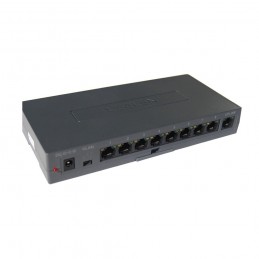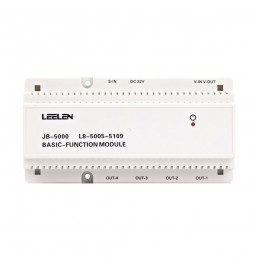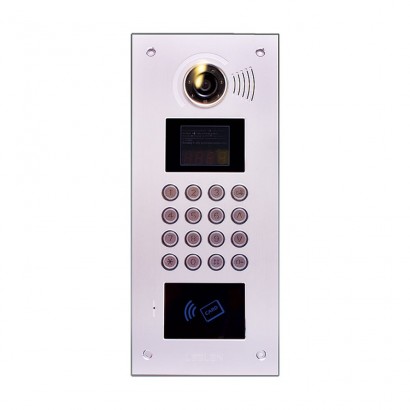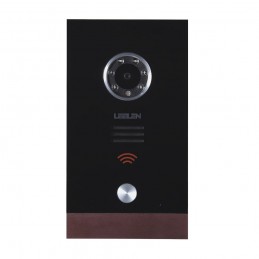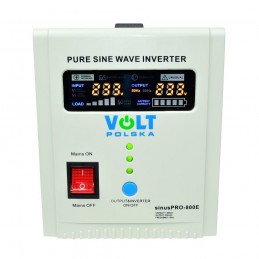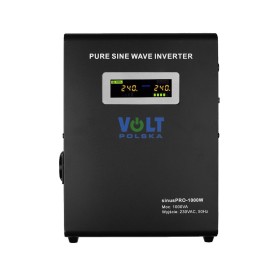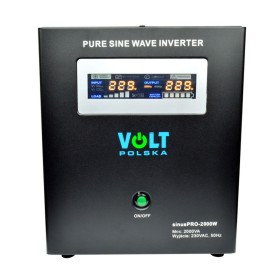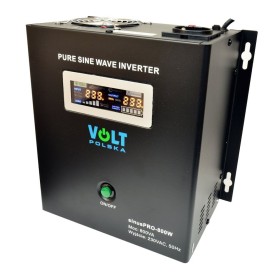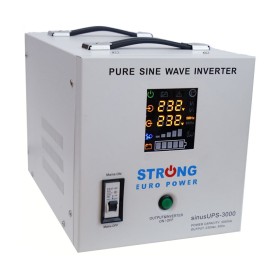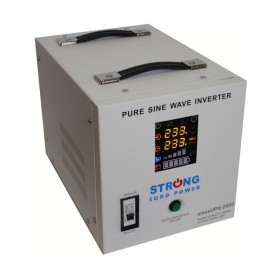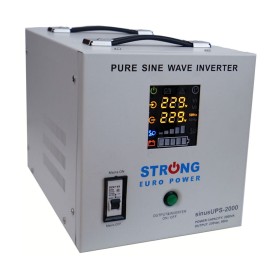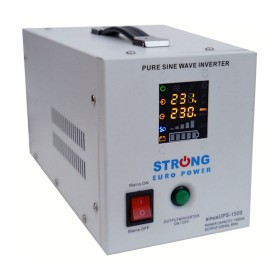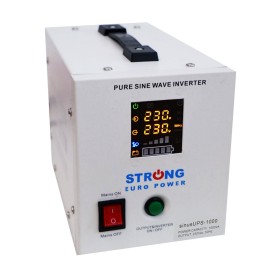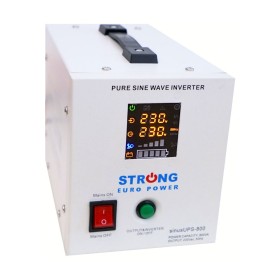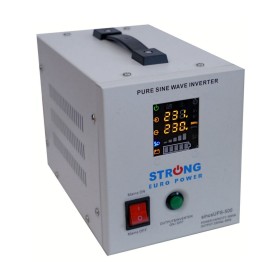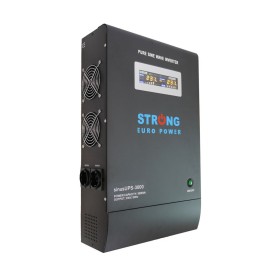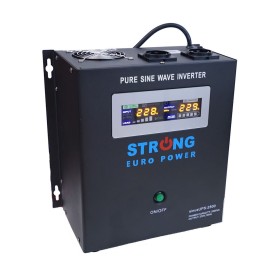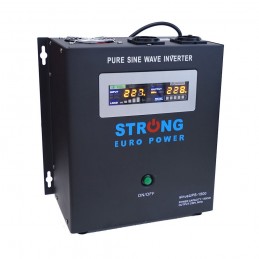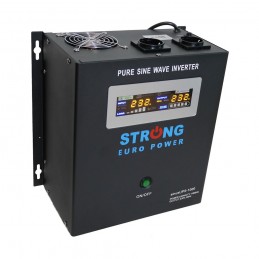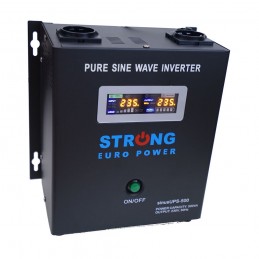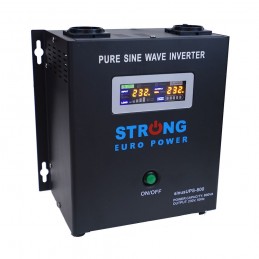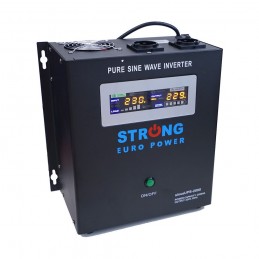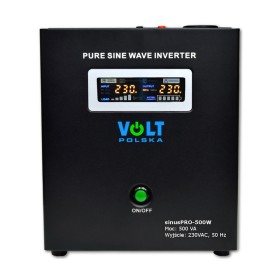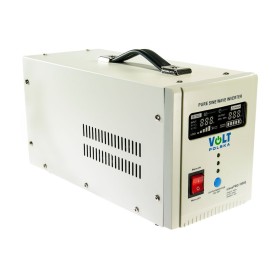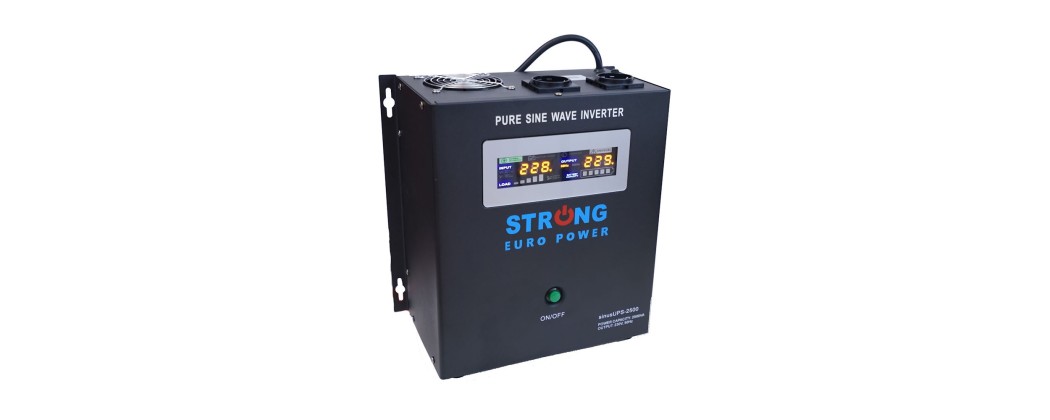
UPS for heating systems
There are 21 products.
UPS centrala termica VOLT sinus PRO-800E 800VA 500W 12V
UPS centrala termica VOLT sinus PRO-800E 800VA 500W. Putere totala: 800VA. Capacitate nominala: 500W. Transformator: toroidal C.R.G.O. Functioneaza cu o baterie de 12V (bateria nu este inclusa).
UPS centrale termice VOLT sinus PRO-1000W 1000VA 700W
Putere totala: 1000VA. Capacitate nominala: 700W. Transformator: toroidal C.R.G.O
UPS centrale termice VOLT sinus PRO-1500E 1500VA 1050W
Putere totala: 1500VA. Capacitate nominala: 1050W. Transformator: toroidal C.R.G.O
UPS centrale termice VOLT sinus PRO-2000W 2000VA 1400W
Putere totala: 2000VA.
Capacitate nominala: 1400W.
Transformator: toroidal C.R.G.O
Capacitate nominala: 1400W.
Transformator: toroidal C.R.G.O
UPS centrale termice VOLT sinus PRO-800W 800VA 500W
Putere totala: 800VA. Capacitate nominala: 500W. Transformator: toroidal C.R.G.O
UPS centrale termice Strong Euro Power 3000VA 2100W
Putere totala: 3000VA. Capacitate nominala: 2100W. Transformator: toroidal C.R.G.O
UPS centrale termice Strong Euro Power 2500VA 1800W
Putere totala: 2500VA. Capacitate nominala: 1800W. Transformator: toroidal C.R.G.O
UPS centrale termice Strong Euro Power 2000VA 1400W
Putere totala: 2000VA. Capacitate nominala: 1400W. Transformator: toroidal C.R.G.O
UPS centrale termice Strong Euro Power 1500VA 1050W
Putere totala: 1500VA. Capacitate nominala: 1050W. Transformator: toroidal C.R.G.O
UPS centrale termice Strong Euro Power 1000VA 700W
Putere totala: 1000VA. Capacitate nominala: 700W. Transformator: toroidal C.R.G.O
UPS centrale termice Strong Euro Power 800VA 500W
Putere totala: 800VA. Capacitate nominala: 500W. Transformator: toroidal C.R.G.O
UPS centrale termice Strong Euro Power 500VA 300W
Putere totala: 500VA. Capacitate nominala: 300W. Transformator: toroidal C.R.G.O
UPS centrale termice Strong Euro Power W 3000VA 2100W
Putere totala: 3000VA. Capacitate nominala: 2100W. Transformator: toroidal C.R.G.O
UPS centrale termice Strong Euro Power W 2500VA 1800W
Putere totala: 2500VA. Capacitate nominala: 1800W. Transformator: toroidal C.R.G.O
UPS centrala termica Strong Euro Power W 1500VA 1050W Tensiune Baterie 24V (2 x 12V)
UPS centrala termica Strong Euro Power W 1500VA 1050W. Putere totala: 1500VA. Capacitate nominala: 1050W. Transformator: toroidal C.R.G.O. Functioneaza cu 2 baterii de 12V (bateriile nu sunt incluse).
UPS centrala termica Strong Euro Power W 1000VA 700W
UPS centrala termica Strong Euro Power W 1000VA 700W. Putere totala: 1000VA. Capacitate nominala: 700W. Transformator: toroidal C.R.G.O. Functioneaza cu o baterie de 12V (bateria nu este inclusa).
UPS centrala termica Strong Euro Power W 500VA 300W
UPS centrala termica Strong Euro Power W 500VA 300W. Putere totala: 500VA. Capacitate nominala: 300W. Transformator: toroidal C.R.G.O. Functioneaza cu o baterie de 12V (bateria nu este inclusa).
UPS centrala termica Strong Euro Power W 800VA 500W
UPS centrala termica Strong Euro Power W 800VA 500W. Putere totala: 800VA. Capacitate nominala: 500W. Transformator: toroidal C.R.G.O. Functioneaza cu o baterie de 12V (bateria nu este inclusa).
UPS centrala termica Strong Euro Power W 2000VA 1400W Tensiune baterie 24V (2 x 12V)
UPS centrala termica Strong Euro Power W 2000VA 1400W Tensiune baterie 24V (2 x 12V). Putere totala: 2000VA. Capacitate nominala: 1400W. Transformator: toroidal C.R.G.O. Functioneaza cu 2 baterii de 12V (bateriile nu sunt incluse).
UPS centrale termice VOLT sinus PRO-500W 500VA 300W
Putere totala: 500VA. Capacitate nominala: 300W. Transformator: toroidal C.R.G.O
UPS centrale termice VOLT sinus PRO-1000E 1000VA 700W
Putere totala: 1000VA. Capacitate nominala: 700W. Transformator: toroidal C.R.G.O. Curent incarcare selectabil: 5A / 10A.

